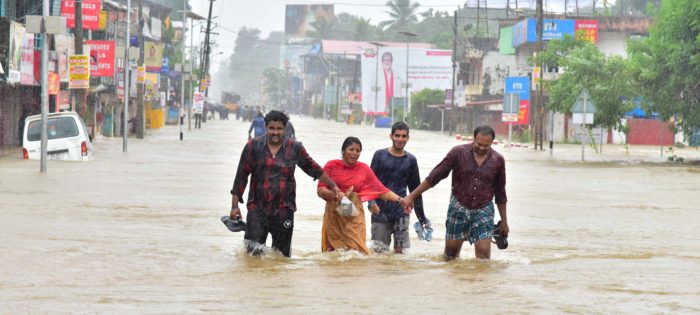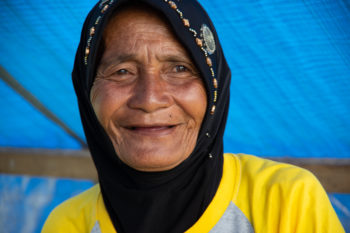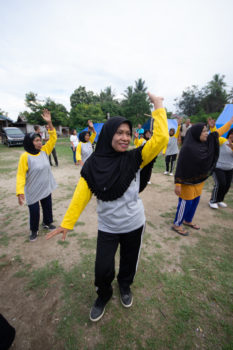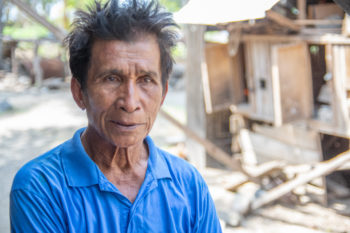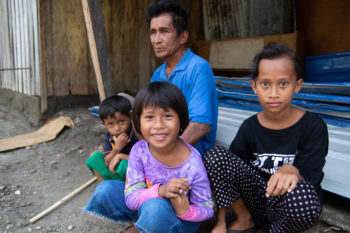ACT Alliance members issued an Assembly Message at ACT’s third General Assembly. The message is indicative of ACT’s prophetic calling and reflection and presents an urgent call for action and commitment to addressing some of the most pressing issues of our time. Here is a summary of the commitments and calls made by the Assembly:
a. Human rights, human dignity and human rights-based approach
Every person is created in the image of God. We will adhere to the fundamental principles of a human rights-based approach and will be accountable and transparent in our work. We will also map ACT’s commitments and experience with disability inclusion to facilitate an alliance-wide understanding. We will develop policy guidelines to achieve ACT’s Global Strategy and the Sustainable Development Goals (SDGs).
We call on governments to:
- Respect, protect and defend human rights and human rights defenders and to reverse policies and practices that hinder civil society organisations (CSOs), including churches and faith-based organisations, and peoples’ movements from their work.
- Fulfil human rights obligations and adhere to global commitments, international humanitarian law.
b. Emergency preparedness and humanitarian response
We reaffirm our commitments to the World Humanitarian Summit and the Grand Bargain and commit to increasing the proportion of ACT members’ humanitarian spend that goes directly to southern members, partners for resilience, disaster risk reduction and preparedness. We will leverage our position in communities to address psychosocial and spiritual needs and to develop survivor, and community-led crisis response approaches.
We call for:
- A re-designed, flexible and coherent humanitarian system that integrates development, humanitarian and disaster risk reduction needs in parallel and puts local and community-led approaches at the centre.
We call on the international community to:
- Recognise the integral role of faith-based organisations for their ability to respond in hard to reach crisis-affected areas.
Ensure that humanitarian work is based on humanitarian principles, international humanitarian law.
c. Sustainable and transformational development
We commit to promoting an integrated response in our humanitarian, development and advocacy work in line with the 2030 Agenda and its SDGs. We will cooperate with various partners and organisations of the UN system to challenge policies and practices that perpetuate vulnerabilities, environmental destruction, and inequalities.
We call on UN member states:
- To maximise their efforts and international cooperation to realise the SDGs and all human rights based on international agreements.
d. Protection of people on the move
Noting that the needs and rights of Internally Displaced Persons (IDPs) are badly-served by current international frameworks, we commit to facilitating effective connections between all levels of our members’ engagement on human mobility to improve protection and access to justice for people on the move.
We call on UN member states:
- To address the adverse drivers of migration and for the creation of conditions so that migration happens out of choice and not necessity.
We call on the international community and other duty bearers:
- To give greater priority to IDPs in future agreements, funding and programmes.
We call on Governments:
- To ensure that asylum, refugee and immigration policies are in line with human rights and dignity.
e. Gender justice
Gender justice ensures that all people have the power to shape societies, faith communities and their own lives. We commit to uphold the rights of all human beings, giving greater attention and support to those where gender intersects with other vulnerabilities. We also commit to examining our work and organisational structures so that they are inclusive of women’s leadership and incorporate a gender justice lens.
We call on Governments and CSOs:
- To recognise and uphold gender justice and equality, as a priority and a pre-condition for sustainable development and to promote gender equality in their programs, at all levels.
f. Human security and promoting peace
We commit to strive for peace with justice and human security. We will engage with National Councils of Churches, interfaith networks and CSOs to prevent violence by addressing the root causes of conflict and to strengthen our robustness to manage potential future conflicts. We will also join our members and churches in peacebuilding, conflict transformation and reconciliation initiatives.
We call on the international community:
- To increase efforts towards addressing and preventing violent conflicts and to ensure that women and men participate in decision-making processes, post-conflict reconstruction and transitional justice processes.
g. Climate justice
We commit to advocate and mobilise for climate and ecological justice, engaging faith communities and leaders in our work. We will foster policies and practices that increase resilience and ensure that our operations adhere to the highest standards of care for creation.
We call on Governments:
- To implement the Paris Agreement in a manner that is ambitious and equitable
- To meet their commitments under the Paris Agreement based on their contribution to climate change and their economic capabilities
We call on the UNFCCC:
- To provide financial resources and leadership in emissions reduction
h. Collaboration, ecumenical and interfaith relationship and action
We will prioritise and support churches, councils of churches and other ecumenical organisations in their ministries and will work with other faith-based organisations, networks and initiatives. We will also support the protection of space for civil society.
We call on the ecumenical family:
- To engage in dialogue, shared reflection and joint initiatives towards responding to the challenges of the world, in a spirit of ecumenical diakonia.
Our Hope in action: putting people first!
We commit to work together in accord with our Christian values to defend and advocate for the human rights, agency and dignity of all human beings. We commit to speaking out against injustice and to fighting for climate justice, gender justice, the rights of people on the move, peace and human security, and protection of people affected by emergencies.
We recognise the importance of investing in ACT forums to enable them to represent and do the work of the alliance at their level.
We recognise the unique capabilities and contributions of youth and will facilitate their meaningful participation within our alliance.
We celebrate the successes and contributions of the ecumenical family to social justice, humanitarian crises, and extreme poverty eradication.
A summary of the commitments and calls made by the Assembly is available for download in English, Spanish, French.
The full Assembly Message is available in all three languages here.
